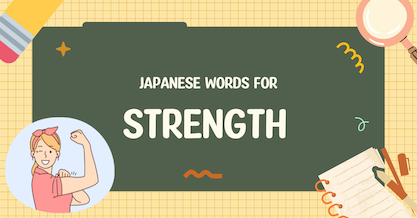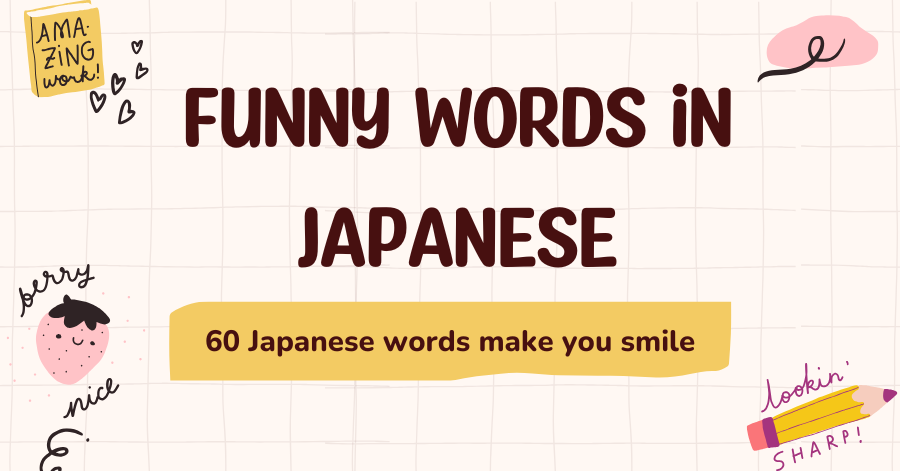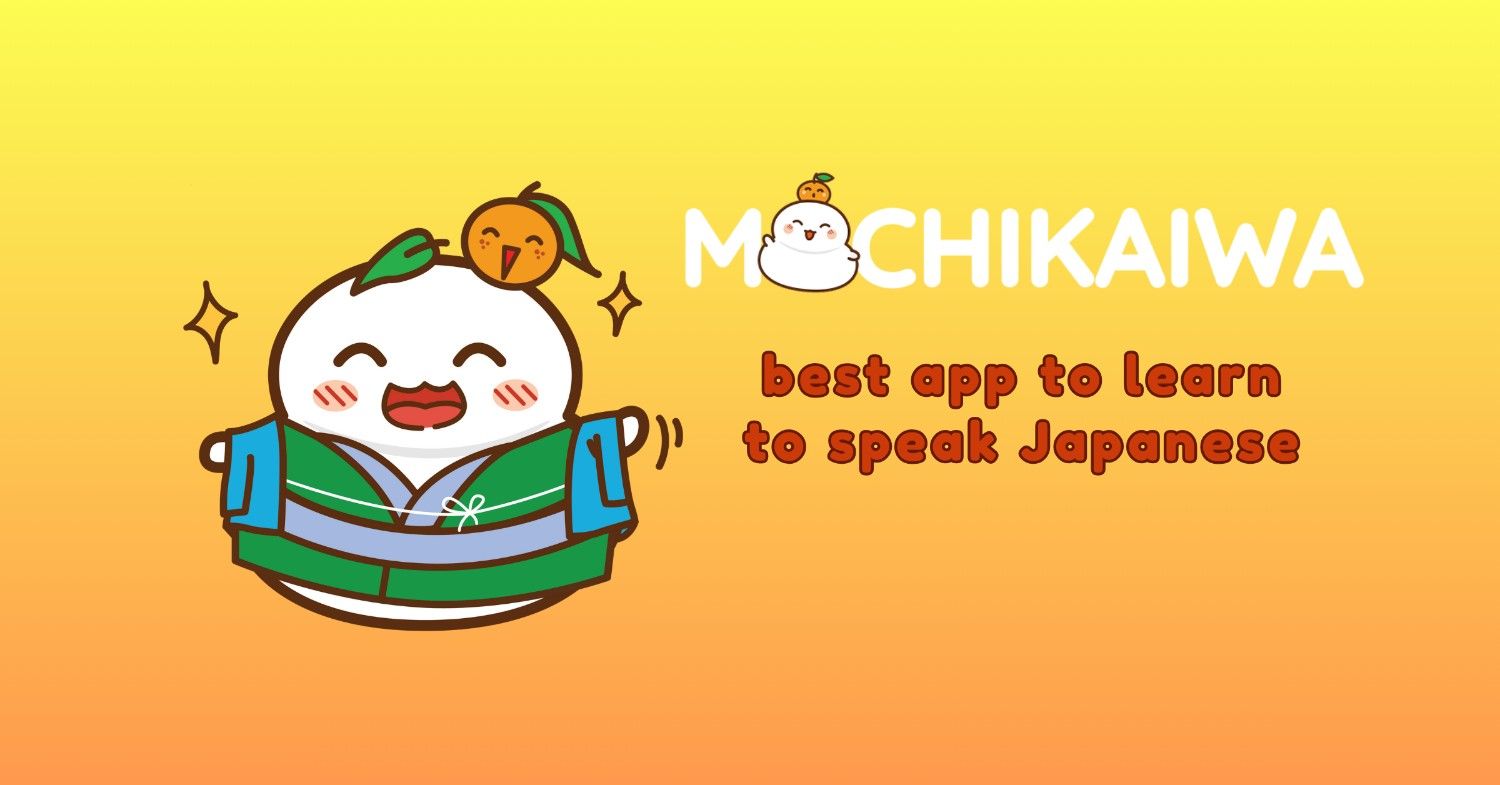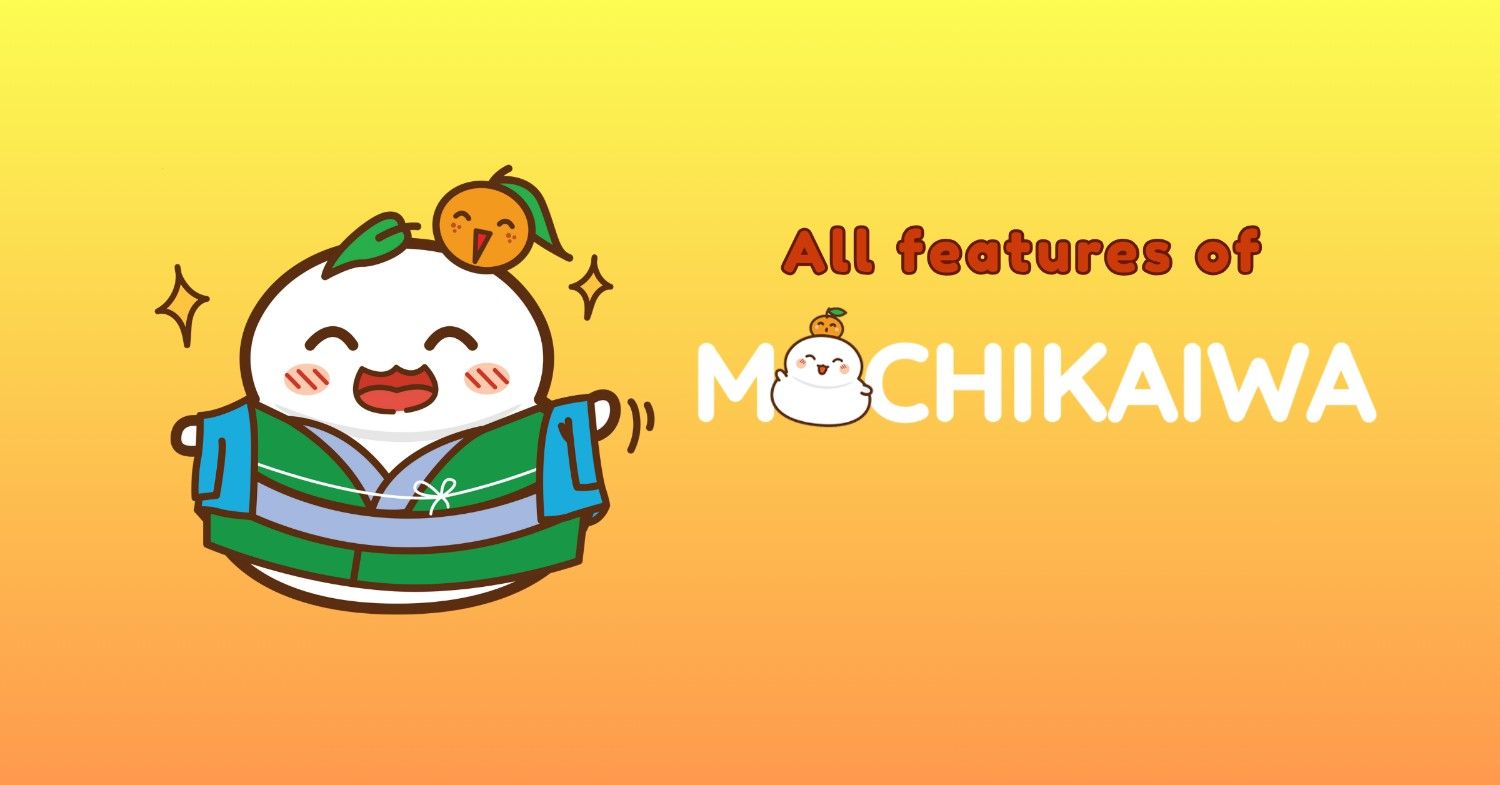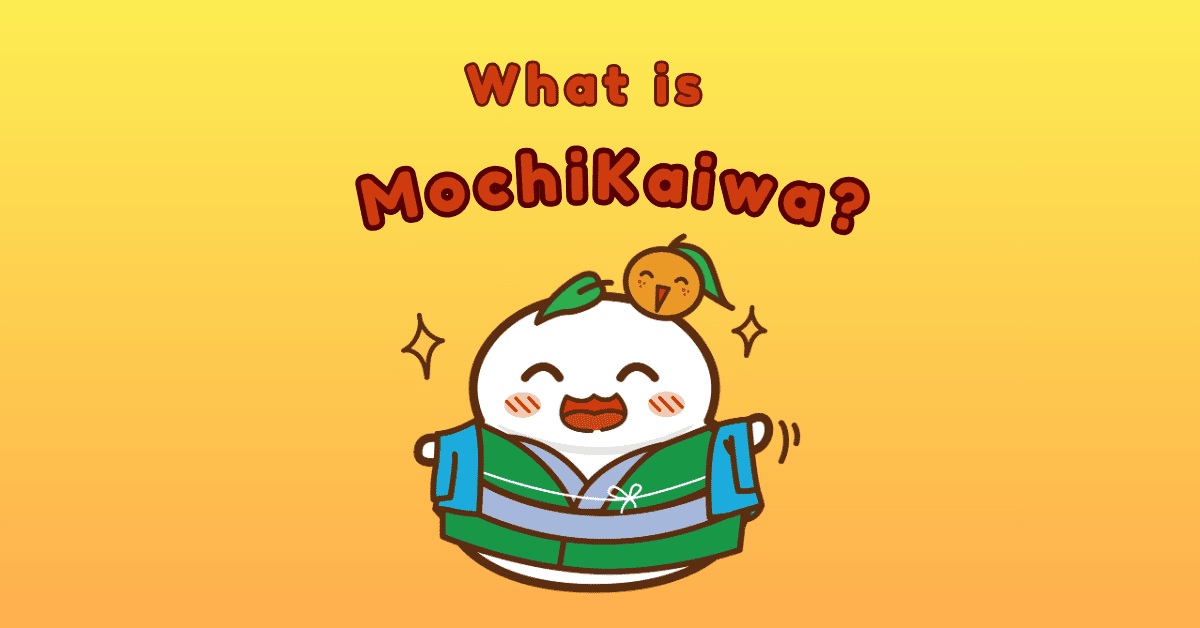Looking to say “I love you” in a special way? These romantic Japanese words and phrases will help you express your feelings with elegance and emotion. Japanese is a language rich in beauty and nuance, making it perfect for conveying love. Whether you want to impress your partner, deepen your connection, or simply add a touch of romance to your conversations, these 25 romantic words will surely make your loved one feel cherished.
- Expressions of love
- Expressions of affection and commitment
- Poetic and symbolic expressions
- How MochiKanji can help you learn more Japanese
- Conclusion
Expressions of love
These phrases are foundational in expressing your deep love and affection. Each one has its own level of emotion and intensity, making it easy to express different degrees of love in Japanese.
1. Aishiteru (愛してる)
Aishiteru is one of the most direct ways to say “I love you” in Japanese, typically reserved for deeply committed relationships.
Example Dialogue:
You: 愛してる
(Aishiteru)
Partner: 私も愛してる
(Watashi mo aishiteru)
(I love you too.)
2. Daisuki (大好き)
Daisuki means “I really like you” or “I love you” in a more casual way. It can be used for both romantic and platonic relationships.
Example Dialogue:
You: 大好きだよ
(Daisuki da yo)
Partner: 私も大好きだよ
(Watashi mo daisuki da yo)
(I love you too.)
3. Koi (恋)
Koi refers to romantic love, often filled with passion and longing. It can express the intensity of falling in love.
Example Dialogue:
You: 恋してる
(Koi shiteru)
Partner: 私も本当に恋してる
(Watashi mo hontou ni koi shiteru)
(I’m really in love too.)
4. Suki (好き)
Suki simply means “like,” and while it’s often used early in relationships, it can also carry romantic implications depending on context.
Example Dialogue:
You: 好きです
(Suki desu)
Partner: 私も好きです
(Watashi mo suki desu)
(I like you too.)
5. Kokoro kara aishiteru (心から愛してる)
This phrase translates to “I love you from the bottom of my heart,” expressing deep sincerity.
Example Dialogue:
You: 心から愛してる
(Kokoro kara aishiteru)
Partner: 心から私も愛してる
(Kokoro kara watashi mo aishiteru)
(From the bottom of my heart, I love you too.)
Expressions of affection and commitment
These phrases emphasize not only love but also the commitment and deep affection that sustain a relationship over time.
6. Zutto issho ni itai (ずっと一緒にいたい)
Meaning “I want to be with you forever,” this phrase expresses a lifelong desire to stay together.
Example Dialogue:
You: ずっと一緒にいたい
(Zutto issho ni itai)
Partner: 私もずっと一緒にいたい
(Watashi mo zutto issho ni itai)
(I also want to be with you forever.)
7. Anata wa watashi no subete (あなたは私のすべて)
This means “You are my everything,” expressing deep emotional attachment and devotion.
Example Dialogue:
You: あなたは私のすべてだよ
(Anata wa watashi no subetedayo)
Partner: あなたも私のすべてだよ
(Anata mo watashi no subetedayo)
(You are my everything too.)
8. Kimi no koto ga suki da yo (君のことが好きだよ)
A more intimate way to say “I like you,” emphasizing the individual qualities of the person you love.
Example Dialogue:
You: 君のことが好きだよ
(Kimi no koto ga suki da yo)
Partner: 私も君のことが好きだよ
(Watashi mo kimi no koto ga suki da yo)
(I like you too.)
9. Watashi no haato wa kimi no mono (私のハートは君のもの)
This phrase means “My heart belongs to you,” showing your partner that they hold a special place in your heart.
Example Dialogue:
You: 私のハートは君のものだよ
(Watashi no haato wa kimi no monodayo)
Partner: 私のハートも君のものだよ
(Watashi no haato mo kimi no mono)
(My heart is yours too.)
10. Issho ni iru to shiawase (一緒にいると幸せ)
This phrase translates to “I’m happy when I’m with you,” showing the joy your partner brings into your life.
Example Dialogue:
You: 一緒にいると幸せになる
(Issho ni iru to shiawase ni naru)
Partner: 私も幸せだよ
(Watashi mo shiawase da yo)
(I’m happy too.)
11. Taisetsu na hito (大切な人)
Taisetsu na hito means “an important person,” used to show someone how much they mean to you.
Example Dialogue:
You: あなたは私にとって大切な人です
(Anata wa watashi ni totte taisetsu na hito desu)
Partner: あなたも私にとって大切な人です
(Anata mo watashi ni totte taisetsu na hito desu)
(You are also an important person to me.)
12. Issho ni itai (一緒にいたい)
This means “I want to be with you,” expressing the desire to spend time together.
Example Dialogue:
You: 一緒にいたい
(Issho ni itai)
Partner: 私も一緒にいたい
(Watashi mo issho ni itai)
(I want to be with you too.)
Poetic and symbolic expressions
Japanese is filled with poetic ways to express love, often using nature and metaphor to deepen the sentiment behind the words.
13. Kimi wa boku no hikari (君は僕の光)
This translates to “You are my light,” symbolizing the hope and brightness that someone brings into your life.
Example Dialogue:
You: 君は僕の光 ですよ
(Kimi wa boku no hikaridesu yo)
Partner: 君も私の光です
(Kimi mo watashi no hikari desu)
(You are my light too.)
14. Ai (愛)
Simply meaning “love,” ai represents the deep romantic and emotional connection one feels.
Example Dialogue:
You: 愛してる
(Ai shiteru)
Partner: 私も愛してる
(Watashi mo ai shiteru)
(I love you too.)
15. Kiseki (奇跡)
Kiseki means “miracle,” often used to describe the wonder of love.
Example Dialogue:
You: 君は私の奇跡だよ
(Kimi wa watashi no kisekidayo)
Partner: 私も君が奇跡だと思う
(Watashi mo kimi ga kiseki da to omou)
(I also think you are a miracle.)
16. Sora no shita (空の下)
Meaning “under the sky,” this phrase evokes a sense of togetherness across vastness, like being united even under the same sky.
Example Dialogue:
You: 空の下で一緒にいたい
(Sora no shita de issho ni itai)
Partner: 私も空の下で一緒にいたい
(Watashi mo sora no shita de issho ni itai)
(I want to be together under the sky too.)
17. Tenshi (天使)
Tenshi means “angel,” often used to compliment someone who brings happiness or comfort.
Example Dialogue:
You: 君は私の天使
(Kimi wa watashi no tenshi)
Partner: ありがとう、君も天使みたい
(Arigatou, kimi mo tenshi mitai)
(Thank you, you’re like an angel too.)
Expressions of longing and affection
These words and phrases are perfect for those special moments when you’re ready to make lifelong commitments or celebrate the endurance of love.
18. Kekkon shiyou (結婚しよう)
This means “Let’s get married”—the ultimate expression of lifelong commitment.
Example Dialogue:
You: 結婚しよう
(Kekkon shiyou)
Partner: はい、喜んで!
(Hai, yorokonde!)
(Yes, with joy!)
19. Zutto aishiteimasu (ずっと愛しています)
This translates to “I will love you forever,” a timeless declaration of eternal love.
Example Dialogue:
You: ずっと愛しています
(Zutto aishiteimasu)
Partner: 私もずっと愛しています
(Watashi mo zutto aishiteimasu)
(I will love you forever too.)
20. Itsumademo issho ni (いつまでも一緒に)
Meaning “Let’s be together forever,” this phrase expresses the desire for a lasting relationship.
Example Dialogue:
You: いつまでも一緒にいたい
(Itsumademo issho ni itai)
Partner: 私もずっと一緒にいたい
(Watashi mo zutto issho ni itai)
(I want to be together forever too.)
Expressions of deep affection
21. Kimi wa boku no subete (君は僕のすべて)
This means “You are my everything,” expressing deep devotion and love.
Example Dialogue:
You: 君は僕のすべてだよ
(Kimi wa boku no subete da yo)
Partner: 君も私のすべてだよ
(Kimi mo watashi no subete da yo)
(You are everything to me too.)
22. Natsukashii (懐かしい)
Meaning “nostalgic,” this word can convey a deep emotional connection to shared memories with your loved one.
Example Dialogue:
You: あの頃が懐かしいね
(Ano koro ga natsukashii ne)
(Those days bring back such fond memories, don’t they?)
Partner: 本当に懐かしいね、- 緒に過ごした時間は特別だった
(Hontou ni natsukashii ne, issho ni sugoshita jikan wa tokubetsu datta)
(Yes, they were so special – the time we spent together.)
23. Kawaii (かわいい)
Meaning “cute,” this term is often used to express affection towards a partner’s charming traits.
Example Dialogue:
You: 君はいつもかわいいね
(Kimi wa itsumo kawaii ne)
(You’re always so cute.)
Partner: ありがとう、君もすごくかわいいよ
(Arigatou, kimi mo sugoku kawaii yo)
(Thank you, you’re really cute too!)
How MochiKanji can help you learn more Japanese
Learning romantic Japanese phrases like these can be even easier and more effective with the help of tools like MochiKanji. MochiKanji uses Spaced Repetition System (SRS) to ensure that words and phrases you study are stored in your long-term memory.
Here’s how MochiKanji can support your language learning journey:
- Golden Time Feature: MochiKanji notifies you exactly when it’s time to review the words, based on the SRS technique, so that you retain them more effectively.
- Interactive Flashcards: Each word or phrase comes with sound and image, allowing you to learn in a more engaging way, which is especially helpful when mastering romantic expressions with proper pronunciation.
- Kanji Writing Practice: MochiKanji helps you practice writing Kanji with the correct stroke order, an important skill for expressing deeper sentiments like “愛” (love) and “結婚” (marriage).
- Vocabulary Courses: With over 8000 words, including romantic vocabulary, MochiKanji offers extensive vocabulary courses to enhance your understanding and communication in Japanese.
By incorporating MochiKanji into your study routine, you can effectively master romantic phrases and deepen your connection with the Japanese language.
Conclusion
Using these romantic Japanese words can help you express your feelings more vividly and deeply. Whether you’re writing a love letter, planning a surprise, or simply telling someone how you feel, these phrases can add a special touch to your words. Embrace the beauty of the Japanese language to melt your loved one’s heart!

